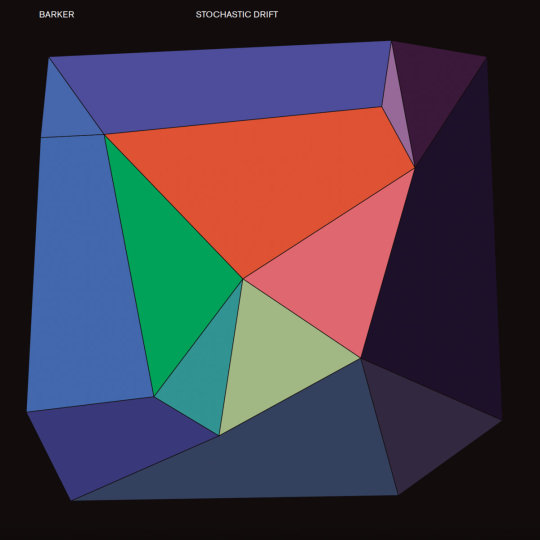#Barker
Explore tagged Tumblr posts
Text
WORM Bitch Animatic
HEY WORMBLR!!
I made a thing! Thought this song really suited Rachel's character. I imagine she ever was put in charge of making an undersides recruitment video it would go a little something like this. I hope you like it!
Dedication:
This video is dedicated to my sister, who insists on the superiorness of the wolfspider ship. (I’m more a fan of skitter x tattletale myself). But here we are. I guess this is some free wolfspider supremacy propeganda for you girl.
Also here's the youtube link: https://youtu.be/tiFX3aduLCo
Sauce: Mondo Generator’s cover of Iggy Pop’s song “Dog Food”
#Worm#wormblr#parahumans#worm web serial#rachel lindt#undersiders#worm fanart#fanart#fan animation#fan animatic#animatic#Skitter#wolf spider#wolfspider#Cassie#Barker#Biter#WagTheDog#wag the dog
586 notes
·
View notes
Text
Spark Flare
heart twinge and stretch... Subtle, hopeful haunt dancing in the muted greys and cold A warm brush between hands stark against the frozen background.
Grounded in just that moment
Gazes fixed (stability) Real time movement (rhythm) understood motions (stasis)
cracked open bonfire heart - Glee and even breath soft smiles
#thoughts#poetry#writing#music inspiration#Gradients of Bliss#Barker#poem for a star that saw the spark#future tense daydreaming to music
49 notes
·
View notes
Text


Barker - Stochastic Drift
20 notes
·
View notes
Text
Barker | Positive Disintegration

#so this album was a treat#barker#stochastic drift#positive disintegration#songs of 2025#electronic#Bandcamp
13 notes
·
View notes
Text

Lex Barker on a vintage postcard
#postkarte#briefkaart#carte postale#photography#vintage#Barker#postal#postcard#ephemera#photo#ansichtskarte#tarjeta#historic#postkaart#sepia
7 notes
·
View notes
Text
The 2025 Dusted Mid-Year Switch: Part 1

Circuit des Yeux
For the twelfth year in a row, Dusted writers have exchanged favorite records from the year’s first half, trusting friends and colleagues with the albums they love and embarking on new listening adventures (rap! metal! extended pipe drones!) recommended by their peers.
The basic format remains unchanged. Everybody picks two top albums. Jenny writes down the picks on slips of paper and randomly assigns them to other writers. No one gets their own picks, anything they already reviewed for Dusted or more than one pick from any single person. We all then have about a month to digest other people’s favorite music and write a paragraph or two about what we think.
It probably only works because we like each other, and honestly, there have been years when it didn’t work all that well. But still, when it does function as hoped, the Mid-Year Switch is one of the most enjoyable events on the Dusted calendar. This is one of the good years (i.e., we don’t think anyone will quit because of disrespect for their picks).
It is not, however, one of the consensus years. In other years, we’ve coalesced around a single record—most notably Heron Oblivion in the third iteration of the switch in 2016—or at least produced clumps of approval in the 3-4 nominations range. This year only Horsegirl’s Phoentics On and On got three picks, and notably, it was not anyone’s #1 or #2 choice.
Five albums got two picks each, including perennial favorites like Circuit des Yeux, Jerry David DeCicca, the Ex and Natural Information Society, as well as newcomer (and Lifeguard offshoot) Sharp Pins. That leaves 99 albums that got picked by only one person, anarchy, sure, but also, if you like exploring lists, a fuck ton of music to explore. Today, we’re running the first half alphabetically, starting with Sophie Agnel and Joke Lanz and going all the way to Vijay Iyer and Wadada Leo Smith. We’ll have the back end of the alphabet tomorrow and writer’s lists the following day. Enjoy.
Sophie Agnel & Joke Lanz — Ella (Klanggalerie)
Who recommended it? Bill Meyer
Did we review it? No.
Justin Cober-Lake’s take:
Ella might be the most unusual record I've heard this year. Sophie Agnel's a free improvisation pianist and, I think, is often working with a prepared piano. Turntablist Joke Lanz makes up the other half of the duo, meaning no matter how weird Agnel gets, there are always more sound coming to push the music to new places. It's hard to make art much more abstracted than this album. There's no easy point of entry here, the artists mostly eschewing melody and rhythm, but it's possible to get lost in a world that's constantly shifting and surprising.
“Sporadic Bursts of Sympathy” sounds quintessential. Lanz feints at grooves, giving the impression that there's structure to come, but these are just the “bursts.” Agnel likewise offers deep rolls and high plucks, hinting at a fractured piece, as if a song's been deconstructed, only there was no construction there to start with. It's a bold statement, and a challenging listen. “21st Century Humans” closes the album with tension that the pair hesitate to release, although the track does build to a bounce (by their standards). A piano motif gives way to a repeated “good morning” before one final squeak sees us out, as if even approaching linearity inevitably leads to silence.
Anika — Abyss (Sacred Bones)
Who picked it? Jennifer Kelly
Did we review it? Yes. Jennifer Kelly wrote: “It’s one of the best albums so far in 2025.”
Alex Johnson’s take:
The last time I heard Anika was the debut album, a stark but charming mix of minimalist post-punk and skeletal girl-group pop. Contrasting it to sunnier indie contemporaries, Dusted wrote: “its beats are too deliberate to be catchy.” “Deliberate,” I think, as in studied, predictable. Not so on the vastly more powerful Abyss, which is plenty deliberate, but as in purposeful, and catches hold early then never lets go. The basslines are bendy and relentless, the guitars squall and grind and pull out perilous arpeggios, wander but never quite break rank, the drumming is unavoidable, undeniable and airtight with a flourish. The band recorded live and quickly and, in the best way, you can tell. These are dance floor dirges; up tempo laments for modern ruins.
To quote Dusted’s review of this album: “what sets [Anika] apart from many contemporary post-punk front people is that she sings really well.” Exactly. Singing or speaking, often embellished with an echo, she’s just as much orator as lead vocalist. The lyrics, too, are sharp and immediate, narrating said modern ruins. The line “the cars are flying” from “Last Song” doesn’t sound like a technological breakthrough but the result of an explosion. There, Anika seems to be heartbroken by the whole of humanity. You could read “the truth is I don’t really like myself/and the truth is I don’t really like anyone else/and the truth is I’d rather be alone than with you” from “Walk Away” in the same light, or interpersonally. Regardless, it’s the best break-up/kiss-off song I’ve heard this year. The moment a brief, surf-y arc of guitar accompanies Anika’s utterly content “so screw you” is especially satisfying. Start to finish, Abyss is furious, gripping not clenching, a storm stirred up and ridden.
Artificial Go — Musical Chairs (Feel It!)
Who Picked it? Alex Johnson
Did we review it? Yes, Alex wrote that like its namesake, Musical Chairs is “a party event, still precarious, still requiring a sense of balance, but played in a whirling, laughing scramble.”
Bryon Hayes’ take:
I was surprised yet delighted to hear new music from Artificial Go so soon after their debut Hopscotch Fever. As Alex described in his review, the band has grown quite a bit in the intervening months. Musical Chairs moves beyond snappy post-punk to explore thicker guitar textures, poppier song structures, and a broader vocal palette. Earworms like “Circles,” “The World is My Runway” and “Hallelujah” really showcase this sense of progression, yet they retain the band’s signature whimsical charm, which is refreshing. Album closer “Sky Burial” spins off in an entirely new direction, embracing dub-like echo effects. It was good strategy by Artificial Go to save such a digression until the end; we’ll be thirsty for more of it when album number three rolls around.
Barker — Stochastic Drift (Smalltown Supersound)
Who recommended it? Patrick Masterson
Did we review it? Yes. Andrew Forell wrote, “Within his template of minimal techno, Barker adds billowing ambient passages and intricate drum programming that unfold with the depth of dub and the logic of jazz."
Justin Cober-Lake's take:
Sam Barker does something extremely impressive on this album: he makes a craft out of formalizing ostensibly chaotic movement. There's some jazz influence here, and the sense of an underlying order comes through at times, but the movement of each of these pieces is all Barker. The rhythms start tight and subtly change, altering each track, but without ever jarring; it's truly drift and not madness. Just as the songs move, the album gradually shifts, but always in a way that feels organic and sensible. Barker has elements of jazz, techno, minimalism, ambient, and more, but it never feels like a mishmash or an exercise in juxtaposition. The album's whole progression has a focused fluidity (if such a phrase makes sense). The song can have slow atmospheric passages, but when it winds up in a complex rhythmic stretch, it feels like a natural, if unanticipated, result. That's the genius of the album, and Barker makes it sound so easy, as if it could happen by chance.
Blood Monolith — The Calling of Fire (Profound Lore)
Who nominated it? Jonathan Shaw
Did we review it? Yes, Jonathan wrote “Your reviewer is moderately tempted simply to repeat ‘this rules’ a few hundred times, in place of attempting to describe or understand the music on The Calling of Fire, Blood Monolith’s debut LP. While repeating the clause (foaming at the mouth, clenching fists, roiling in a dank cellar…) would constitute a review of sorts, it’s likely not what folks show up to Dusted to read. Too bad.”
Ray Garraty’s take:
This does rule, no way to deny it. While Blood Monolith has an eye on the past, the band never just simply indulges in Death or Siege or any other grindcore-ish Mastodon worship from the 1990s. Its music corrupts your ears but is not corrupted by the modernizing tendencies which have soured a lot of metal music lately. It never pats you on the back, reassuring you in your soft cushion taste in metal. It just slaps you in the face and gives a nice blow to your skull. Maybe that is why The Calling of Fire angered some metal fans who were asking for… melody? Well, not everything is supposed to be melodic. This isn’t.
Raven Chacon — Voiceless Mass (New World)
Who picked it? Christian Carey
Did we review it? No
Alex Johnson’s take:
“Voiceless Mass” opens with a chime, followed by a rumble. It’s almost but not quite overwhelming; it swaddles and carries the listener in. For music largely structured around sustained notes, nothing really lingers. The effect for me was of a slideshow of landscapes: each scene displaying then giving way, echoing but not replicating what came before. “Biyán” demands attention in a different way. Grand swaths of terrain swapped for ground-level observation of organisms. Squeaky-door horns and hard-to-place but charismatic scribbles of playing dominate the movements but are tempered (and given emphasis) by the transitional calm of a high violin or a fade to near-silence. Like the chime from “Voiceless Mass,” timpani is a catalyst, signaling another sliding, chirping crescendo or a cue for the squiggling, scraping strings to exit stage left.
Voiceless Mass isn’t quite voiceless. If the title track is a mass due to elemental power, “Owl Song,” the only piece with discernible vocals, is a mass as in teeming. There are chants and short shrieks. A wobbling yet lucid soprano is paired with a burst of jazz drumming. A piano is struck. New voices jump in, up and down the scale, before tagging in an instrument of similar timbre. Strings are plucked, bows grind, vocal notes are, at times, more gnawed than sung. There are whistles and gunshots of timpani. “Owl Song” sounds less like a musical ensemble than a bustling cast of character actors. It completes the album’s journey from the monuments of “Voiceless Mass” and bristling fauna of “Biyán” to the chaotic joys and strains of humanity.
Brighde Chaimbeul — Sunwise (tak:til)
Who nominated it? Ian Mathers
Did we review it? Yes, Ian wrote, “Even more so than on the excellent Carry Them with Us there’s a powerfully ceremonial feeling to this set of songs, aided by the even more minimal instrumental lineup and that frosty, imposing first side.”
Jennifer Kelly’s take:
Brighde Chaimbeul is a master of the Scottish smallpipes, a hand-held wind instrument related to the (somewhat larger and better known) bagpipes. It’s a traditional instrument backed by centuries of lore and practice and Chaimbeul has all that under her belt (she’s won folk piping contests), plus a restless experimental bent that has led her to collaborate with Colin Stetson, Caroline Polachek and others. Sunwise bends archaic resonances towards the shape-shifting forms of modern improvisatory drone. The opener, “Dùsgadh/Waking,” is more or less unadulterated tone, one sustained note that flickers and vibrates uninterrupted for just over nine minutes. If you go with it, which takes some meditative intent, it becomes a portal to stillness, a link to reverberations both within and outside this particular music. It stops you dead, in other words. “A' Chailleach” continues in that vein, but with a bit more frolic in it; to the long murmuring laments, she adds a bit of melodic flourish, which builds and finally culminates in some lovely highland evocative singing. Sunwise is a family enterprise. Chaimbeul’s dad closes “Duan” with some stirring (but inscrutable) Gaelic spoken verse, while her brother Eòsaph sings with her on the closing “The Rain is Wine and the Stones Are Cheese,” the lightest-hearted and most dance-able of these tracks. Music from the stone age might easily turn constraining, especially for younger, female artists, but Chaimbeul is too much of a free spirit for that. She frees it without disrespecting it and uses its forms for her own 21st century ends.
Circuit des Yeux — Halo on the Inside (Matador)
Who Picked it? Jennifer Kelly
Did we review it? Yes, Christian wrote, "Fohr’s songwriting is as strong as ever and her singing voice is singular."
Bryon’s take:
In his Dusted review of -io, Tim Clarke found the album "couches existential terror within ritualistic performance and orchestral musicality, and is often a challenging listen." If you replace "orchestral musicality" with "chilly EBM," he could be describing Halo on the Inside rather aptly. Haley Fohr has travelled deeper into the darkness with this record, wrapping her powerful voice in thick synthetic harmonies torn from the dust of Stranger Things’ parallel world. The music is icy and sinister, but elegant and rhythmic. The melodies and textures tangle with the vast expanse of Fohr’s signature croon to evoke imagery consistent with nocturnal activity. She’s constructed a frigid funk that is at home both on the dance floor and in a good set of headphones. I can imagine Helena Hauff spinning these songs in an abandoned power plant or a sweaty, black-walled basement. I can also see Halo on the Inside as the perfect soundtrack to a midnight stroll. It’s new territory for Fohr stylistically, but this album retains enough of her signature spirit to fit snugly within her overall body of work.
Ezale — Town Taxes (Foreal Foreal)
youtube
Who nominated it? Ray Garraty
Did we review it? Nope
Jonathan Shaw’s take:
Town Taxes flashes by in 22 minutes of rump-shaking, sunny sounds, lightened even more by Ezale’s slightly nasal, upper-register voice. There’s a winning charm to the record’s sonic textures, which gravitate more toward radio-friendly Earth, Wind, & Fire or late-1970s Gap Band than harder funk or the grit of neo-soul. Those bright surfaces belie some of the more interesting thematics Ezale engages; the release’s high point (sorry…) may be “Ironic,” which suggests the complicated feelings that lurk just under the music’s incessant search for pleasures. It’s a good song. For sure, among the persistent, prevailing concerns of hip hop, Town Taxes is a lot more interested in getting smoked up and chasing girls than it is in stacking cash or flashing gats. But by the time you get to closing track “Make Her Gig,” it’s clear just how much of the ostensibly good time comes at the expense of women (or, inevitably, in the parlance of Town Taxes, “bitches”): Ezale croons, “I bet you I can make her do what I tell her to / I bet you I can make her gig without her wig / Hangin with me instead of watchin her kids.” And it’s there from the jump, as on opening track “Hang Wit Them,” when he happily chirps, “Ain’ no tellin what the bitch’d do / I was all on her face like barbecue.” Swell. It feels like punching down. Seems like there must be other ways to elevate the self, or to get higher.
Hectorine — Arrow of Love (Take a Turn)
youtube
Who nominated it? Alex Johnson
Did we review it? Yes, Alex called the album, “ornate without being baroque and whimsical without affectation. This is precise and dramatic, yet conjured and dreamy music, delivered with devotion.”
Christian Carey’s take:
Sarah Gagnon is the creative songwriter and vocalist behind Hectorine, and explores a dark Sumerian myth on Arrow of Love, her third full length recording. It is the story of Inanna, an ancient Sumerian warrior goddess who goes to hell and back (literally) in a tale of fratricide, demons, human sacrifice, and a final (sort of) redemption. Gagnon channeled the depths of this dark tale, in part, to exorcise recent losses in her own life, both of a job and a relationship.
Arrow of Love juxtaposes lyrics as desolate as Inanna’s story and her own grief, with music that is (self-described) soft rock that is artful in approach. The overall result is eloquent in its restraint, with co-producer Geoff Saba providing multiple instruments to create a bed of sound, as well as several adroit saxophone solos, to accompany Gagnon’s expressive alto voice. The title tune is an example of the fetching results, with a synth solo appearing prominently and a cocoon of backing vocals from Betsy Gran and Joel Robinow. Ancient Sumerian soft rock? Sure.
Jenny Hval — Iris Silver Mist (4AD records)
Who nominated it? Tim Clarke
Did we review it? Yes, Tim wrote, “Jenny Hval brings acute intelligence and a conceptual bent to all of her work, infusing her art-pop with depth and intricacy.”
Josh Moss’ take:
Iris Silver Mist, the latest record from Norwegian singer/songwriter Jenny Hval, is centered around her ethereal, ice-clear voice, but the production styles pull from across decades and genres to create a modern, experiential take on art pop. The sounds of the Pure Moods compilation blend with the experimentalism of Björk, early ought’s indie-dance-pop moves meet the hermetic melodicism of Kate Bush. Spoken word elements throughout seem to emphasize the album’s themes of sensory and tactile experience — one that sticks out describes the physical movement of a sound being recorded, and ends with “Happy Birthday,” nearly shouted. Sound being recorded and played back; in other words conceived and born. The album is named after a rare perfume scent and is at least in part inspired by the collision of a budding music career with the grim realities of the COVID pandemic. This could be seen as the loss of one sense, which can force a being to lean harder on another to interact with reality — but in this case Jenny Hval’s quarantine-era obsession with scent led her back around to music, resulting in Iris Silver Mist.
Vijay Iyer & Wadada Leo Smith — Defiant Life (ECM)
youtube
Who picked it? Justin Cober-Lake
Did we review it? No
Bill Meyer’s take:
Dusted may not have reviewed this record, but I covered it for the Wire a few months ago. Then and now, I am taken by the music’s grave dignity, which is very much in tune with the tragedy of our time and aware of its sturdy links to the crimes of earlier ones. Now well into his 80s, trumpeter Wadada Leo Smith sounds unreasonably great on a horn not known for its kindness to age. Vijay Iyer makes spacious, sympathetic frameworks for Smith from rumbling piano and muted electric keyboard textures; I can't think of a better setting in which to hear him. The only way in which this record has dimmed since I heard it is that, having attended one of the duo’s concerts, I know that they’re even more compelling in person.
#dusted magazine#midyear#midyear 2025#Sophie Agnel & Joke Lanz#bill meyer#justin cober-lake#anika#jennifer kelly#alex johnson#artificial go#bryon hayes#barker#patrick masterson#blood monolith#jonathan shaw#ray garraty#raven chacon#christian carey#Brighde Chaimbeul#ian mathers#circuit des yeux#ezale#hectorine#jenny hval#tim clarke#josh moss#Vijay Iyer & Wadada Leo Smith
6 notes
·
View notes
Text

The memes funny but I’m actually impressed with how detailed they made it
#titanfall 2#frontier defense#cyberpunk 2077#johnny silverhand#barker#blatantly stolen from Reddit#not mine
42 notes
·
View notes
Text

RA.982 Barker
7 notes
·
View notes
Text
barker -- reframing
4 notes
·
View notes
Text

Rolls-Royce Phantom III Sedanca de Ville de Barker 1937 conçue pour Lord Fairhaven de Cambridgeshire, conduite par Oddjob (Harold Sakata) dans le film Goldfinger. - source Bob Kauffman via World Cars from the 1930s to 1980s.
youtube
45 notes
·
View notes
Text


8 notes
·
View notes
Audio
Barker’s Stochastic Drift
#barker#stochastic drift#smalltown supersound#music#progrressive electronic#ambient techno#idm#electronic#minimal techno#dub techno#techno#electronica#progressive techno#experimental#club#dance#bandcamp
4 notes
·
View notes
Text

Barker (Sam Barker)
source: cdm © 📸: ???
3 notes
·
View notes
Text

Barker - Stochastic Drift
29 notes
·
View notes
Text
FRIDAY 13TH


ITS MY BIRTHADAY!!
7 notes
·
View notes
